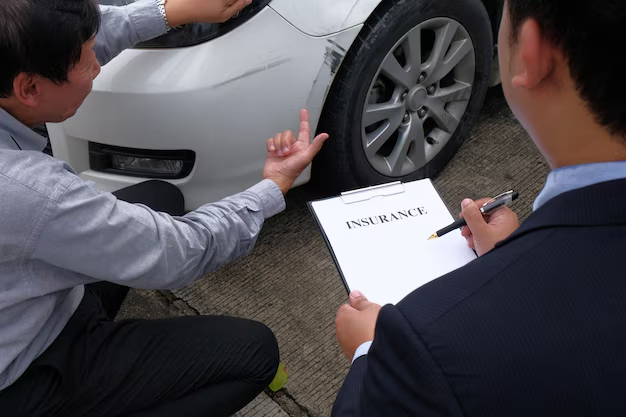Do You Really Need Insurance Before Buying a Car? Exploring the Essentials
Purchasing a vehicle is an exciting experience, yet it brings a plethora of questions and responsibilities. One of the first concerns potential car owners ponder is whether they need insurance before finalizing their purchase. This topic delves into various aspects of car insurance, ensuring a smooth, compliant transition to car ownership.
🤔 Understanding Car Insurance Requirements
Is Insurance Mandatory Before Driving Off the Lot?
In most regions, auto insurance is required before you can legally drive your vehicle off the dealership lot. Laws can vary significantly by state or country, so it's crucial to understand the specific requirements where you live. Typically, a proof of insurance is needed to:
- Register the vehicle with the local authorities.
- Obtain temporary license plates during a car purchase.
- Comply with dealership policies, which often require proof of insurance before finalizing any sales agreement.
Exploring State-Specific Regulations
Each state has unique requirements, and some may allow you to purchase a vehicle without insurance but require coverage before registration. Generally, obtaining at least liability insurance is necessary. This protects against damages to others or their property in case of an accident.
🔄 Transitioning to Subtopics
Types of Insurance Coverage
Depending on your needs, there are multiple types of car insurance available:
- Liability Insurance: Covers damages to others caused by your vehicle.
- Collision Insurance: Pays for damage to your car sustained from a collision.
- Comprehensive Insurance: Covers non-collision-related incidents like theft or natural disasters.
- Uninsured/Underinsured Motorist Coverage: Protects against drivers who lack adequate insurance.
Temporary Insurance Solutions
For buyers wishing to drive their new car immediately without taking the time to secure permanent insurance:
- Short-Term Insurance: Some providers offer temporary coverage options valid for a few days to a month.
- Dealer Insurance Solutions: In some cases, dealerships might offer insurance arrangements valid long enough for the buyer to arrange permanent coverage.
🛡️ The Role of Insurance When Financing
Financing vs. Paying Cash
When you finance a car, lenders commonly require:
- Full coverage insurance, which combines liability, collision, and comprehensive insurance. This ensures they’re protected until the loan is paid off. Paying cash might give you more flexibility, but foundational coverage is still a legal requirement for registration and road use.
🚗 Buying a Used Car: Insurance Implications
Purchasing a used vehicle doesn’t typically change the necessity for insurance. You’ll need:
- Immediate coverage before driving it home.
- A quick discussion with your provider about how used vehicle coverage might differ slightly from new car policies, especially in terms of value assessments and coverage limits.
Dealer vs. Private Seller
Both require proof of insurance for you to drive the car away. However, buying through a private seller might necessitate organizing your own insurance in advance since private sellers rarely provide temporary solutions like dealerships.
👥 Understanding Insurance Costs
Factors Influencing Premiums
Insurance costs are influenced by numerous factors:
- Driver's Age and Experience: Younger drivers or those with less driving experience tend to have higher premiums.
- Driving Record: A clean record can lead to discounts, while a history of accidents or tickets can increase costs.
- Location: Urban areas often come with higher rates due to increased risk of accidents and theft.
- Vehicle Type: High-performance or luxury vehicles typically result in higher premiums.
Cost Optimization Tips
- Bundle Policies: Using the same insurer for both your home and auto can often provide significant discounts.
- Increase Deductibles: Opting for higher out-of-pocket costs if you need to file a claim can reduce your monthly premiums.
- Good Student Discounts: Many insurers offer discounts for students maintaining good grades, recognizing their potential for responsible behavior.
🔍 Finding the Right Provider
Comparing Quotes
Before purchasing insurance, obtaining multiple quotes ensures you find the best rate for your needs. Consider the following:
- Coverage Details: Make sure you compare similar coverage levels.
- Customer Reviews: Insights into other customers' experiences can offer peace of mind.
- Financial Strength: Providers with solid financial stability are less likely to encounter issues when claims arise.
Leveraging Technology
- Comparison Websites: These can spit out quotes from various insurers tailored to your demographic profile.
- Mobile Apps: Many insurance companies provide apps offering discounts for safe driving, typically through tracking features.
📝 Creating Practical Tips and Takeaways
Key Points to Remember
- 🚗 Always ensure you have at least liability insurance before driving your new car.
- 📑 Check your state's requirements for insurance and vehicle registration.
- 💸 Consider different coverage options based on your vehicle, location, and personal driving profile.
- 📊 Use technology to compare rates and potentially secure discounts.
✨ Closing Insight: The Balance of Preparedness and Flexibility
Navigating the waters of car insurance can seem daunting at first, but understanding the essentials helps streamline the process significantly. Prioritize securing the right coverage to enjoy peace of mind and compliance as you embark on new adventures with your vehicle. Whether you're buying new or pre-owned, or financing or paying outright, having your insurance in place ensures a seamless, worry-free transition to car ownership.

Related Topics
- a Affordable Car Insurance
- a Car Insurance Companies
- a Car Insurance Company
- a Cheap Car Insurance
- a Max Car Insurance
- Are Car Insurance Rates Going Up
- Are Electric Cars More Expensive To Insure
- Are Health Care Insurance Premiums Tax Deductible
- Are Hybrid Cars More Expensive To Insure
- Are Insurance Premiums Tax Deductible For Obama Care
